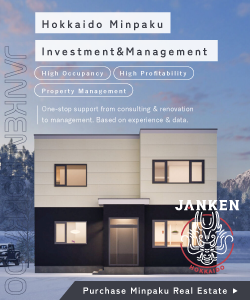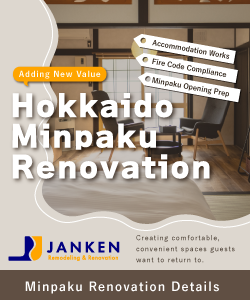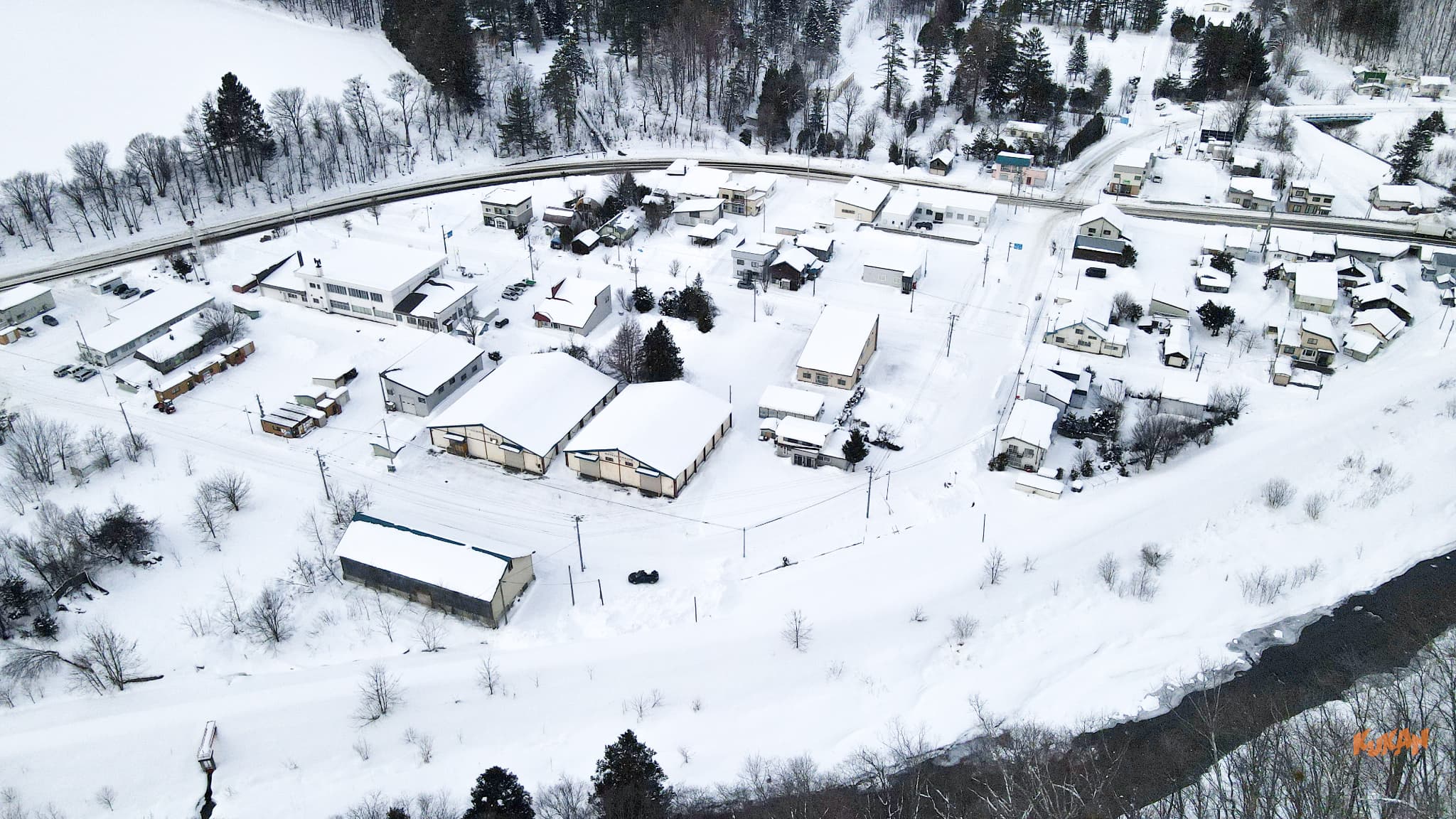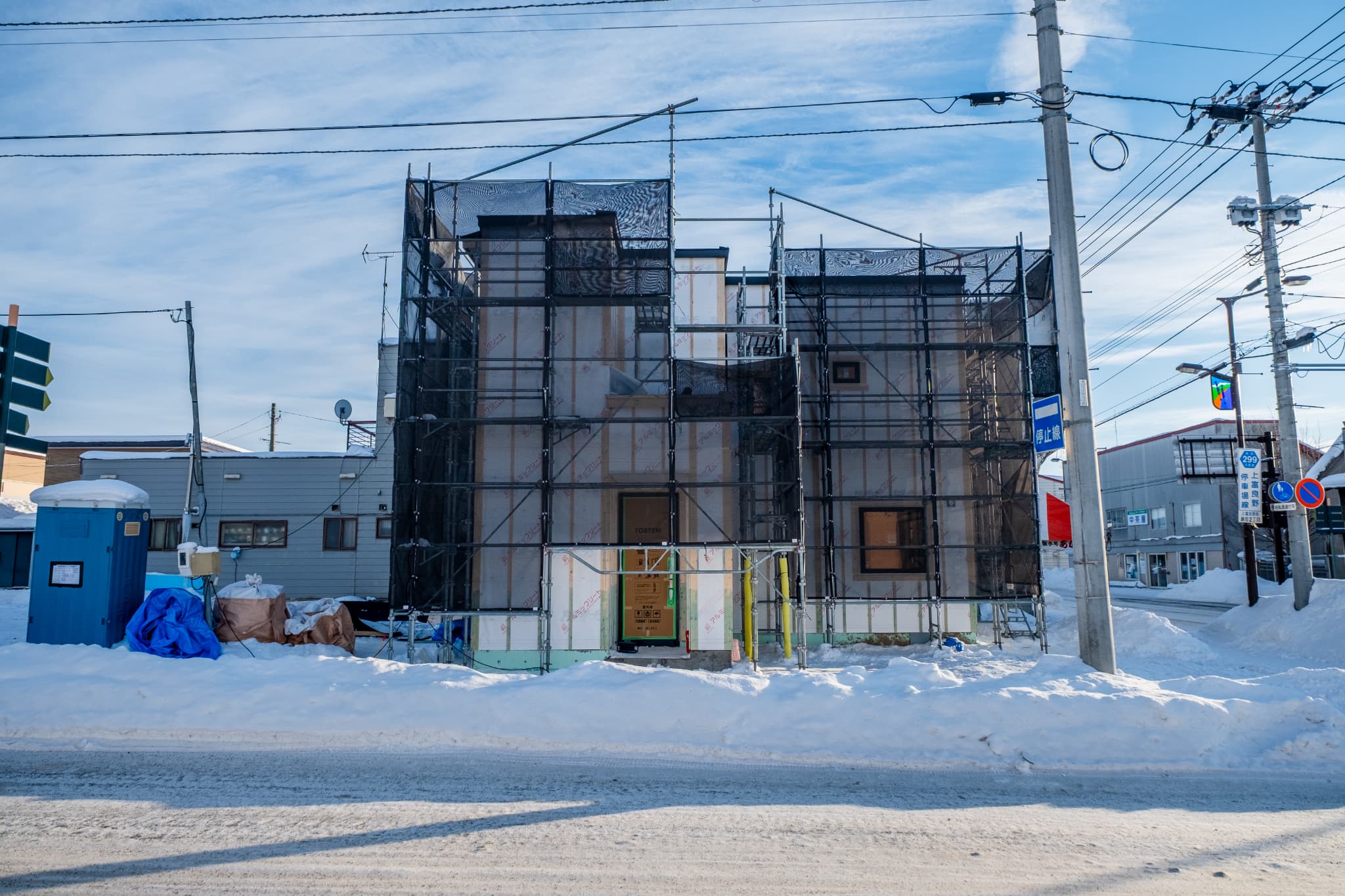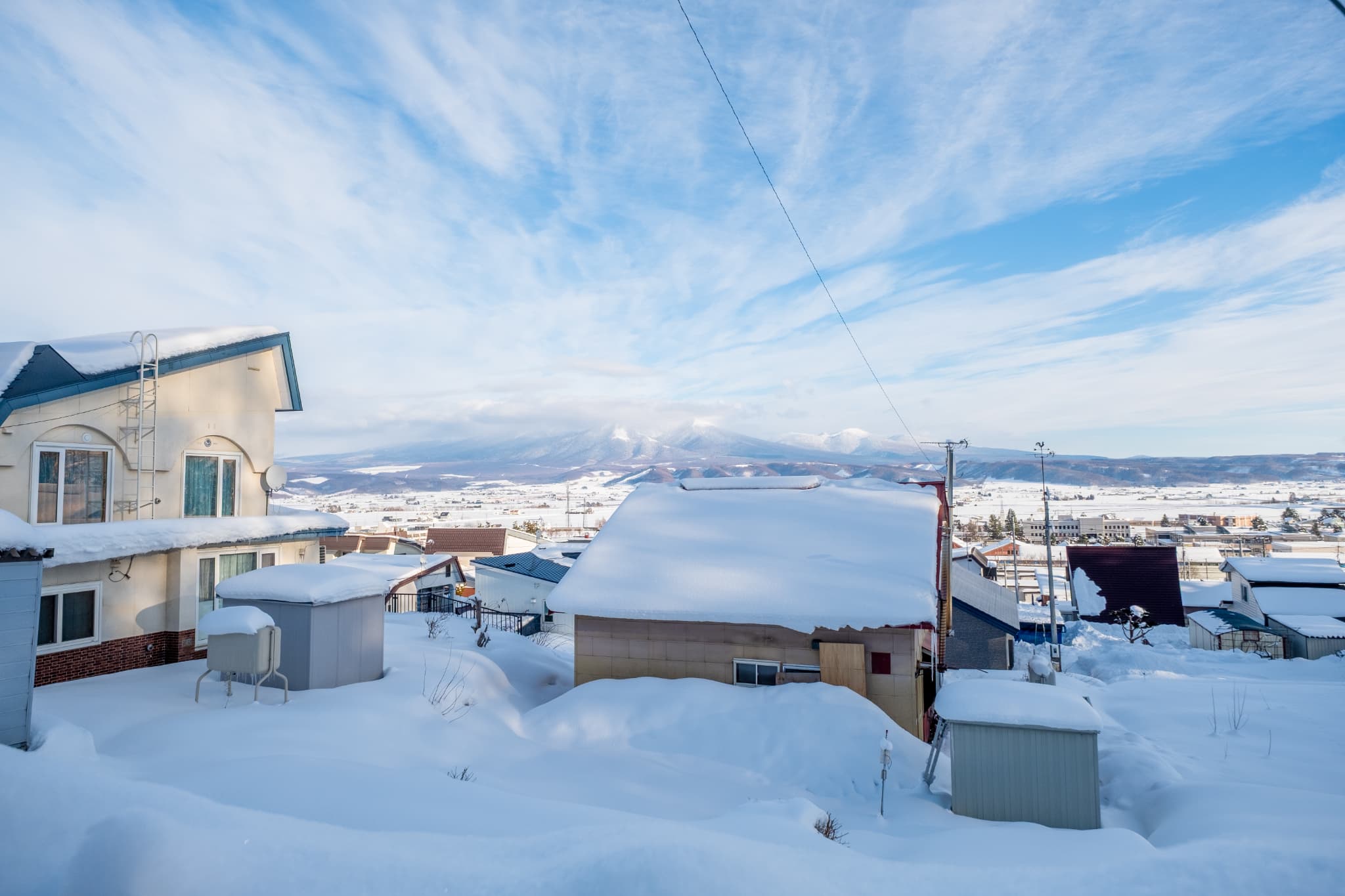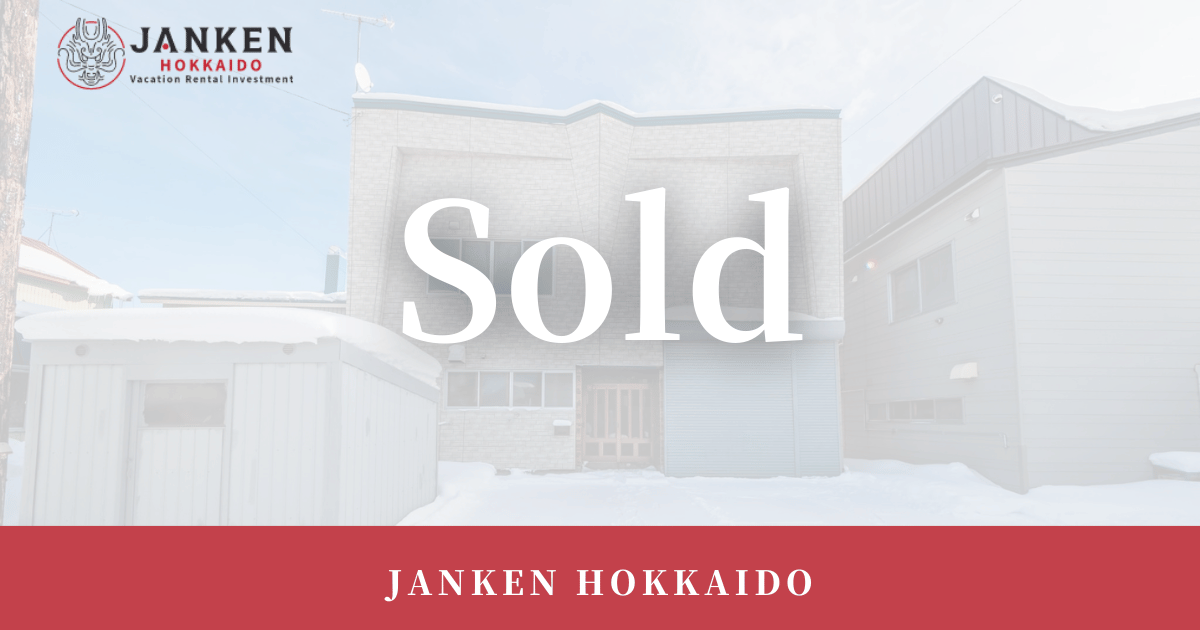What Are Real Estate Brokerage Fees? A Complete Guide for Foreign Investors Considering a Property Purchase in Niseko or Furano
2025.04.29

For overseas investors interested in purchasing property in Hokkaido—especially in Niseko and Furano—understanding Japan’s brokerage fee system is essential.
When buying real estate in Japan, you’ll almost always encounter brokerage fees. But are you confident in how they work?
This article offers a clear and comprehensive explanation of brokerage fees: how they’re calculated, typical fee structures by region, legal upper limits, when and to whom they’re paid—and even the background behind “zero brokerage fee” offers and the latest legal revisions.
We’ll also introduce JANKEN, a company that specializes in providing full support for international buyers.
Contents
- 1 What Is a Real Estate Brokerage Fee? A Basic Guide for Foreign Buyers in Japan
- 2 How Are Brokerage Fees Calculated? Upper Limit Rules Explained with a Simple Chart
- 3 What Are the Latest Revisions to Brokerage Fee Regulations? What Has Changed and How It Affects Investors
- 4 What’s Behind “Zero Brokerage Fee”? Why Some Properties Can Be Purchased with No Commission
- 5 Buying Property in Niseko or Furano? JANKEN Offers Complete Support for Foreign Investors
What Is a Real Estate Brokerage Fee? A Basic Guide for Foreign Buyers in Japan
In Japan, brokerage fees are generally incurred when purchasing real estate. These are success-based commissions paid to a licensed real estate agent who facilitates the transaction between the buyer and seller.
For foreign investors unfamiliar with Japan’s unique real estate system, especially those living overseas, aspects like payment timing and legal distinctions can be confusing.
This section provides a simple explanation of what brokerage fees are, how they’re structured, and the legal basis for them.
What Are Brokerage Fees, and Why Are They Charged?
Brokerage fees are paid to real estate agents (registered under the Real Estate Transaction Business Act) to compensate for services such as property listing, viewings, negotiation, and support with contracts.
The maximum amount is legally regulated, and the fee is only charged after a deal is successfully concluded. If no contract is finalized, no fee is owed.
These fees are not administrative charges—they are legal compensation for professional mediation and advisory services that bridge the buyer and seller.
Payment Timing and Who Pays How Much
Brokerage fees are typically not charged in advance. Instead, they are often paid in two parts:
half at the signing of the sales contract and the remaining half upon property handover.
Depending on the deal structure, either the buyer, the seller, or both may pay the fee.
In a “single agency” arrangement, only one party pays (usually the buyer). In a “dual agency,” both parties may pay.
Since all fees are tied to the property price and legally capped, buyers are protected from being overcharged. For more on specific calculations, see the next section.
How Japan Differs from Other Countries: Why Foreign Buyers Often Get Confused

In Japanese real estate transactions, it is common for the buyer to pay brokerage fees, whereas in many other countries, this cost is usually borne only by the seller.
This difference often confuses foreign investors.
One unique aspect of Japan is the practice of dual agency, where a single real estate company can legally receive fees from both the buyer and seller.
While this would be considered a conflict of interest in many countries, it is both legal and standard in Japan. Understanding this system and its risks is essential for a secure and informed transaction.
Additionally, when a foreign national owns property in Japan, it is legally required to appoint a tax agent.
Given the distinctive practices like dual agency, it is highly recommended that foreign investors seek support from specialists well-versed in Japanese regulations.
To understand the full process—including legal, tax, and property management considerations—we recommend reading JANKEN’s related articles:
Niseko & Furano Real Estate Buying Guide for Foreigners: Procedures, Taxes & Management and What Is a Tax Agent Required for Foreigners Purchasing Real Estate in Niseko and Furano? Explanation of Roles and Necessity
How Are Brokerage Fees Calculated? Upper Limit Rules Explained with a Simple Chart
Brokerage fees vary depending on the property price, but the maximum fee is strictly regulated by Japanese law. In this section, we’ll clearly explain how brokerage fees are calculated—both the simple “quick formula” and the legally defined tiered system—along with an easy-to-use reference table for first-time property buyers.
The Basic Brokerage Fee Formula (Quick Calculation Method)
For most transactions, brokerage fees are calculated using the standard formula:
Property Price × 3% + ¥60,000 (excluding tax).
This is known as the quick calculation method, and is commonly used when the property price exceeds ¥4 million.
For example, if you purchase a used property for ¥40 million:
40,000,000 × 0.03 + 60,000 = 1,260,000 yen
Add 10% consumption tax, and the total brokerage fee becomes ¥1,386,000.
This simplified formula only applies to property prices over ¥4 million. For more accurate breakdowns (e.g., under ¥2M or ¥4M), see the next section.
Since brokerage fees are success-based and paid only upon contract conclusion, it’s important to estimate them in advance to understand the cost structure.
Tiered Calculation Method: Legal Brokerage Fee Limits
Japanese law stipulates a tiered structure for brokerage fees based on the property value. This applies to land and buildings and is calculated as follows:
- On the portion up to ¥2 million: 5%
- On the portion between ¥2 million and ¥4 million: 4%
- On the portion above ¥4 million: 3%
[Case Study] When Buying a Property Priced at ¥15 Million

For example, when purchasing a ¥15,000,000 property:
¥2,000,000 × 5% + ¥2,000,000 × 4% + ¥11,000,000 × 3%
= ¥100,000 + ¥80,000 + ¥330,000 = ¥510,000 (before tax)
This is the maximum allowable brokerage fee under Japan’s tiered calculation system.
The “quick calculation method” introduced earlier (3% + ¥60,000) is actually a simplified version of this tiered structure.
It produces the same result for transactions above ¥4,000,000, making it a convenient alternative.
To properly understand your costs, it’s important to grasp how the tiered calculation works.
Check Your Brokerage Fees at a Glance: Fee Chart by Property Price
Since brokerage fees in Japan vary based on the purchase price, the tiered system can seem complex at first.
To make things easier, we’ve created a quick-reference fee chart for properties ranging from ¥2,000,000 to ¥50,000,000.
This chart helps buyers visually grasp the legal fee ceiling at each price level, offering instant clarity on expected costs.
| Property Price (in 10,000 yen units) | Brokerage Fee (Excl. Tax, in 10,000 yen units) | Brokerage Fee (Incl. Tax, in 10,000 yen units) |
| 200 | 10 | 11 |
| 300 | 14 | 16 |
| 400 | 18 | 20 |
| 500 | 21 | 24 |
| 600 | 24 | 27 |
| 700 | 27 | 30 |
| 800 | 30 | 33 |
| 900 | 33 | 37 |
| 1000 | 36 | 40 |
| 1250 | 44 | 49 |
| 1500 | 51 | 57 |
| 1750 | 59 | 65 |
| 2000 | 66 | 73 |
| 2250 | 74 | 82 |
| 2500 | 81 | 90 |
| 2750 | 89 | 98 |
| 3000 | 96 | 106 |
| 3250 | 104 | 115 |
| 3500 | 111 | 123 |
| 3750 | 119 | 131 |
| 4000 | 126 | 139 |
| 4250 | 134 | 148 |
| 4500 | 141 | 156 |
| 4750 | 149 | 164 |
| 5000 | 156 | 172 |
This chart uses a 10% tax rate and rounds up to the nearest ¥10,000.
We recommend recalculating your brokerage fee using the formulas previously introduced when applying it to your own transaction.
What Are the Latest Revisions to Brokerage Fee Regulations? What Has Changed and How It Affects Investors
In Japan, the maximum brokerage fee for real estate transactions is defined by the “Notification No. 1552 of 1970 by the Ministry of Construction”, which regulates the amount that real estate agents are allowed to receive.
Overseen by the Ministry of Land, Infrastructure, Transport and Tourism (MLIT), the law establishes fee ceilings based on the property price.
As of July 1, 2024, the system has been revised. A previous special rule, originally applicable only to properties priced at ¥4 million or less, now applies to transactions up to ¥8 million. This change raises the brokerage fee cap to ¥300,000 before tax (¥330,000 incl. tax).
This update aims to stimulate the circulation of vacant homes and low-price used properties, particularly in regional markets.
For investors, it’s important to be aware of this rule, as it helps clarify cost expectations for lower-priced property transactions.
Current Rules and Trends for Brokerage Fees in Japan
Under Japan’s Real Estate Brokerage Act, brokerage fees are strictly regulated.
The commonly used “quick calculation method” applies to properties priced above ¥4 million and is calculated as 3% of the property price plus ¥60,000 (excluding tax).
However, a separate cap of ¥300,000 (before tax) applies to transactions under ¥8 million, based on the 2024 revision.
This section also explains the reasoning behind that change.
Japan’s fee system is not flat-rate but tiered based on price brackets, which provides flexibility.
As an investor, understanding the correct upper limits based on property price is essential for accurate cost forecasting and ROI planning.
What Is the “Special Brokerage Fee Rule”? A Policy to Support Lower-Priced Property Transactions
To address vacant homes and promote the circulation of lower-value properties, a new rule was introduced in July 2024 allowing up to ¥300,000 (before tax) in brokerage fees for transactions under ¥8 million.
This “special rule” was created to address two main issues:
- It’s difficult for agents to secure sufficient earnings on low-price deals.
- Many of these properties require costly repairs or preparations before being marketable.
By allowing proper compensation for agents, the system is designed to encourage more active regional real estate markets.
What Foreign Investors Should Know: Legal and Practical Changes
For foreign investors purchasing real estate in Japan, understanding both the legal framework and operational changes is key.
Since 2022, Japan has fully implemented online explanations for important transaction terms (IT Disclosure), removing the need for in-person signatures.
This is especially beneficial for overseas buyers who cannot travel to Japan.
Additionally, more agencies now offer multilingual contracts and support, reducing the risks caused by language or cultural differences.
Thanks to these institutional updates, Japan’s real estate market is becoming a more accessible and transparent investment environment for international investors.
What’s Behind “Zero Brokerage Fee”? Why Some Properties Can Be Purchased with No Commission

Especially when considering the purchase of land or used properties, “zero brokerage fee” is often advertised as a cost-saving benefit. In this section, we’ll explain how this system works—and what to watch out for.
Common Situations Where Brokerage Fees Are Free
One typical case is dual agency, where the real estate company receives commission only from the seller.
When selling land or used properties owned by the company itself, it often waives the fee for the buyer.
Additionally, with newly built homes or dealer-owned properties, sellers often cover the agent’s fee and advertising costs—meaning buyers enjoy lower out-of-pocket expenses.
Still, don’t be misled by the term “free”—it’s essential to understand the transaction structure.
Is It Really a Bargain? Understand the Risks Behind “Free”
Just because the fee is “free” doesn’t always mean it’s a great deal.
In many cases, the real estate company is still being paid—by the seller, which can lead to a conflict of interest.
For example, you may only be shown fee-free properties and miss out on better alternatives. This practice is called “steering”, and it limits your options.
Also, some companies may inflate the property price to compensate for the waived fee.
For investors, understanding the entire deal structure is crucial for making smart decisions.
Buying Property in Niseko or Furano? JANKEN Offers Complete Support for Foreign Investors
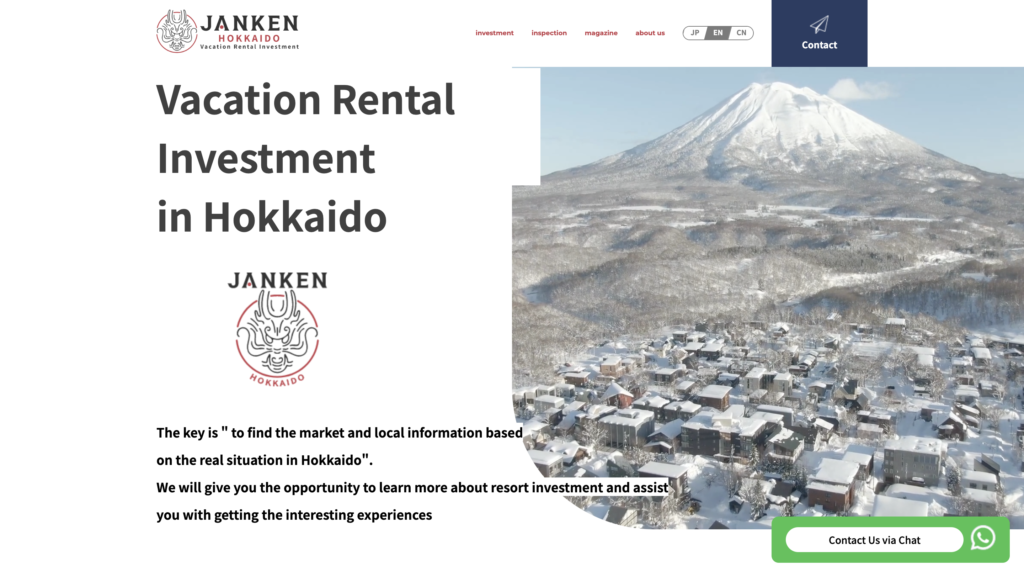
If you’re considering buying real estate in Niseko or Furano, JANKEN provides comprehensive support tailored for foreign investors.
From brokerage consultation to post-purchase management and rental income strategies, we offer one-stop service.
Post-Purchase Peace of Mind: Maintenance & Property Care
Foreign owners often worry about maintaining land or used properties remotely. JANKEN solves this with services such as:
- Regular inspections
- Ventilation, plumbing, and cleaning
- Weed and pest control
- Mail storage and forwarding
- Repair proposals and execution
- Furniture removal and disposal
Whether it’s a vacation home or rental property, JANKEN acts as your on-the-ground partner.
Not Just Brokerage Fees: We Cover Renovation, Minpaku Investment & Operations
Niseko and Furano have strong tourist demand, making them ideal for short-term rentals.
With deep experience in minpaku operations, JANKEN handles property selection, renovation, revenue planning, and day-to-day management.
Property Selection for Minpaku Use

We introduce properties that suit platforms like Airbnb, tailored to market trends in Niseko and Furano.
Renovation Proposals to Maximize Returns

We offer design and renovation solutions that enhance rental income and appeal to guests.
Renovating interiors and adjusting floor plans can maximize the profitability of your property as a minpaku (short-term rental).
You can learn more about JANKEN’s renovation services on our dedicated website.
Reliable Support for First-Time Foreign Buyers
For foreign investors purchasing property in Japan for the first time, we provide a clear and easy-to-follow guide to the entire buying process.
Purchasing real estate in Japan involves multiple steps:
defining your preferences, viewing properties, submitting an application, reviewing the important disclosures, signing the contract, making payment, registering ownership, and final handover.
Foreign investors may also need to arrange for multilingual contract support, appoint a tax agent, and handle international fund transfers in advance.
JANKEN provides seamless, end-to-end support for these procedures.
See our guide on [The Real Estate Buying Process] for more details.
If you have questions about taxes, ownership, the role of a tax agent, or transaction steps, please check out our FAQ Page.

Summary|Thinking About Buying Real Estate in Hokkaido? Consult with JANKEN
Japan’s real estate system may seem complex for foreign investors, but with the right partner, you can invest with confidence.
JANKEN deeply understands the characteristics of Niseko and Furano and offers comprehensive services—from brokerage consultation to vacant house management, minpaku renovation, and investment planning.
If you’re considering property acquisition or investment in Hokkaido, feel free to reach out to us.







